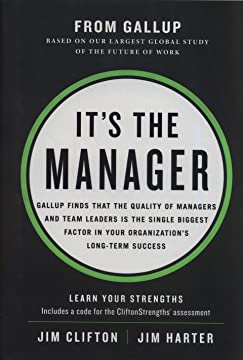Who's Responsible for Employee Success?
Cathie Leimbach • July 15, 2020
This is a subtitle for your new post

When I facilitate client meetings, every person in the room shares their perspective on the matter at hand and contributes ideas of how to move forward. Managers are often shocked at the positive energy and quality of input from their staff. Why are so many leaders, managers, and supervisors unaware of their staff’s potential and their value to the organization?
One reason is that few managers ask questions. There is a tendency for supervisors to give their staff day-by-day, or even hour-by-hour, specific instructions on what to do next, or they leave their staff alone to figure everything out by themselves. Few managers invest a lot of time using an intermediate approach. Daily or weekly two-way conversations between staff members and supervisors are relatively uncommon. Without such discussions, supervisors are unaware of their staff’s strengths and interests so can’t leverage their potential.
And, when staff don’t interact with others at work, they don’t feel valued. Their enthusiasm and productivity drop. Then, managers get frustrated with employee apathy and mediocre productivity.
Leaders push staff to work harder. Staff complain that managers aren't helpful or expectations aren't clear. Decades of Gallup research has revealed that the staff's assessment of the problem is pretty accurate. 70% of the factors that contribute to disappointing morale, engagement, productivity, and profit are the responsibility of managers.
So, what is the root cause of mediocre organizational outcomes? IT’S THE MANAGER!
Effective managers have servant hearts. They develop the skills needed to help their staff be the best they can be. They manage by asking questions that inspire great conversations and by becoming competent in the fifteen core skills of effective management. Unfortunately, this description of an effective manager does not describe the majority of managers.
What will you do this week to move beyond average? What is your next step to becoming a manager who leads with excellence and develops a healthy, high performance workplace team?
Most CEOs focus on strategy, systems, and talent. But the biggest driver of performance is already in place: managers. Manager behavior influences about 70% of team engagement and results. What happens in everyday conversations matters more than perks, pay, or policies. Managers either multiply energy or drain it. Clear, supportive managers raise performance. Avoiding, inconsistent managers quietly lower it. The good news? Small habits make a big difference: Clarifying expectations Giving timely feedback Addressing issues early Reinforcing priorities These moments add up. Instead of telling managers to “motivate people,” try asking: Where might expectations be unclear? Where is inconsistency allowed? What conversation is being avoided? When managers improve just a little, results improve a lot. 👉 Join our 60-minute Leadership Conversation to explore how everyday manager habits quietly shape engagement and results.

When engagement drops, many organizations reach for perks—rewards, programs, or incentives. These can create a short lift, but they rarely solve the real issue. Engagement starts with expectations. Most people want to do good work. What gets in the way isn’t motivation—it’s uncertainty. When priorities shift, roles feel unclear, or success means different things to different leaders, people disengage quietly. Leaders often don’t realize they’re contributing to this. Vague direction, inconsistent follow-through, or assuming “they already know” leaves teams guessing. Over time, guessing turns into frustration—and frustration turns into disengagement. Strong engagement cultures focus on leadership basics: Clear priorities Shared definitions of success Aligned expectations Consistent reinforcement When expectations are clear, people move with confidence. They take ownership, collaborate better, and stay engaged because they know where they’re headed. Perks can support engagement—but only after clarity is in place. 👉 Read our full article on Why Engagement Starts With Expectations to turn clarity into a real advantage.
